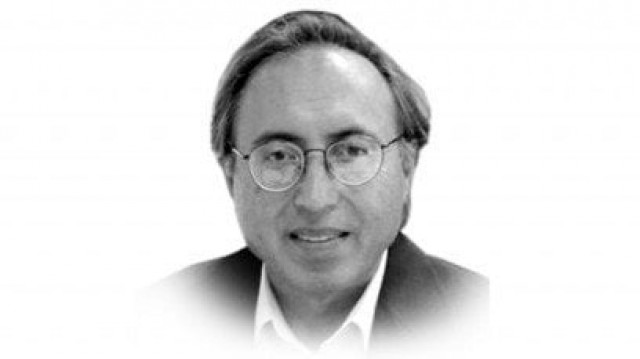Pakistani first

Pakistani first
Even when we are struggling to be a democracy under the most unfavourable social circumstances, such surveys are important for us to establish social and political facts. In the absence of these facts, what we are and what we think about national and global issues would remain a subjective matter.
One of the subjective, and often concocted stories is about Pakistani identity. It has been wrongly asserted that a majority associate themselves with their linguist social groups. Those of us working in fields of academia and journalism have contested this view for decades, and quite vigorously. In our assessment, a deep sense of Pakistani nationalism has existed all along, and the sentiment of national solidarity has deepened over time.
Before we get to explain how and why the shift in loyalties has taken place, we need to refer to the startling results of the Pew survey: 89 per cent of Pakistanis say they think of themselves as Pakistani first, rather than a member of their ethnic group.
Wow, that is an amazing figure and must now throw the ‘research’ and ‘findings’ of those intellectuals and scholars — domestic and foreign — to where they should belong: the dustbin or for a better burial, the paper-shredder. Maybe we should save that ‘research’ to remind ourselves how they have misrepresented our country.
What explains the confirmation of Pakistani identity being so widely embedded in the society? First of all, it was the Muslim consensus, in the subcontinent, far and wide that generated the demand for Pakistan in the Muslim majority areas. Whether it was a breakdown of that consensus in the rise of Bengali nationalism or something else — failure to transfer power to the majority party demanding provincial autonomy and finally Indian military invasion — is a story for some other day.
Second, a historical fact that is often ignored even by well meaning historians, is that the linguistic groups that comprise Pakistan today have lived together for thousands of years under one kingdom or empire. Historically, and more since independence through migration and urbanisation they have intermeshed with one another. Even the evolution of Urdu, our national language, owes itself to inter-mixing of peoples with different cultural and linguistic backgrounds.
Third, for centuries Pakistanis have shared a common territorial region and civilisational area of the Indus. Indus is not just a river, it is a great civilisation that has absorbed the richness of so many religions and cultures, Islam being its most dominant shade. The name of the country, Pakistan, owes itself to the composite territories of the Indus that I am referring to.
All the political crises, conflicts and plundering by the oligarchic elite that we have endured have not shaken our faith in Pakistan. Rather, in recent decades, we have seen a greater sentiment among people to take the country back, but not knowing how and under whose leadership.
Finally, the most notable factor contributing to identity is the optimism of the Pakistani youth and their ownership of the country. Their enthusiasm, energy and love for the country offers hope that Pakistan will be put back on the rails of modernity and develop according to the vision of its founders. There is also a great hope for this vision. In the same survey, Pakistanis have rejected the Taliban, extremism and religious violence, for belittling and driving their country down.
Published in The Express Tribune, June 21st, 2010.














COMMENTS
Comments are moderated and generally will be posted if they are on-topic and not abusive.
For more information, please see our Comments FAQ